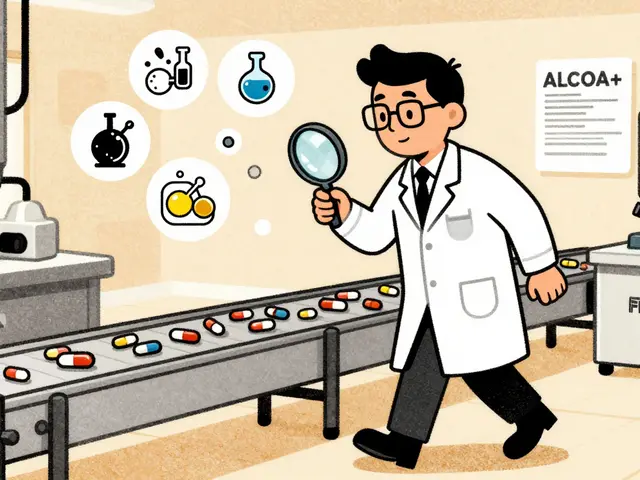Allopurinol — what it does, how to take it, and what to watch for
Want to lower uric acid and prevent gout attacks? Allopurinol is one of the most common choices. It stops the enzyme xanthine oxidase, which lowers production of uric acid. That helps prevent new crystals forming in joints and tissues.
Here's a straightforward look at when to use it, simple dosing rules, safety checks, and everyday tips you can use or discuss with your doctor.
When doctors prescribe allopurinol
Allopurinol is usually given for recurrent gout attacks, tophi (deposits of urate crystals), uric acid kidney stones, and to prevent tumor lysis syndrome during some cancer treatments. It’s not a pain reliever for an active gout attack — it prevents future attacks. Many clinicians wait until the acute pain eases before starting, or they start it while giving anti-inflammatory cover.
Dosing basics and monitoring
Common starting doses are 50–100 mg once daily, especially if you have kidney problems. Most people end up on 100–300 mg daily. If uric acid stays high, doctors slowly increase the dose — some patients go up to 600–800 mg daily under close supervision. The goal is usually a serum uric acid below 6 mg/dL (360 µmol/L); for people with tophi, the target may be lower.
Before and during treatment your doctor will check kidney function, liver tests, and serum uric acid. If you have chronic kidney disease, doses start lower and are adjusted carefully. Also expect a follow-up within a few weeks after starting or changing the dose to check labs and symptoms.
Important drug interactions: allopurinol can make azathioprine and mercaptopurine much more toxic — doses must be reduced or the combination avoided. Tell your clinician about other medicines like ampicillin/amoxicillin, certain diuretics, and anticoagulants so they can watch for interactions.
Side effects to watch for: most people tolerate allopurinol fine, but rashes, GI upset, and liver enzyme changes can occur. A rare but serious reaction is allopurinol hypersensitivity syndrome (AHS) — look out for fever, rash, swollen glands, and worsening kidney or liver tests. If you notice a rash or fever, stop the drug and contact your doctor right away.
There’s a genetic risk factor (HLA-B*5801) linked to hypersensitivity in people of Han Chinese, Thai, and some Korean descent. If you fall into those groups, your doctor may test before starting.
Practical tips: take allopurinol after a meal to reduce stomach upset, drink enough water to lower kidney stone risk, avoid heavy alcohol and high-purine foods while you’re getting control of uric acid, and keep a simple log of lab results and symptoms. Don’t stop the drug abruptly after an attack without talking to your provider.
If you want to learn more about interactions, dosing in kidney disease, or whether allopurinol is right for you, check reliable guides or talk to a pharmacist or clinician familiar with your health history.

- Jul 16, 2023
- Posted by Cillian Osterfield
Allopurinol in Combination Therapy: Maximizing Treatment Outcomes
In my recent research, I delved into the use of Allopurinol in combination therapy to maximize treatment outcomes. This medication, primarily used to treat gout, is showing promising results when combined with other treatments for various conditions. I found that the benefits extend beyond gout management, potentially improving outcomes for heart disease, kidney disease, and even some cancers. However, it's important to note that more research is needed to fully understand the extent of its impact. It's fascinating to see how one medication can have such diverse applications.
Categories
- Health and Wellness (72)
- Medications (71)
- Health and Medicine (28)
- Pharmacy Services (12)
- Mental Health (9)
- Health and Career (2)
- Medical Research (2)
- Business and Finance (2)
- Health Information (2)
Latest Posts
©2026 heydoctor.su. All rights reserved





